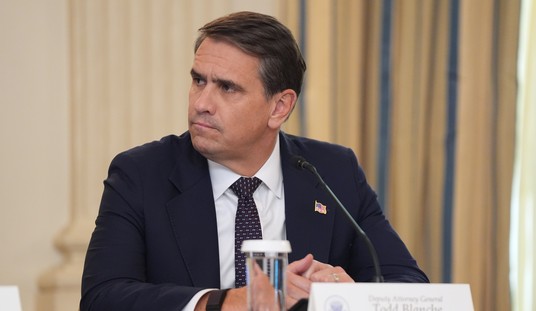While the Supreme Court’s health care decision and the 2012 election season have been dominating news in the U.S., in London a banking scandal is unfolding which threatens to engulf much of the British financial and political establishments. The story has barely registered in the U.S. outside of the financial press, but the scandal is set to spread across the Atlantic, and is being discussed as potentially the biggest market manipulation fraud in history.
Barclays bank has been fined $453 million by U.S. and UK regulators, and its American chief executive, Bob Diamond, has resigned after admitting its staff rigged the inter-bank “Libor” rate — a daily measure of the interest rates at which banks lend to one another — over a period of several years. The Libor rate affects interest rates paid to investors and by borrowers on mortgages and other loans. According to the Wall Street Journal, more than $800 trillion in securities and loans are linked to Libor.
This rigging was divided into two phases. Starting in 2005, Barclays traders conspired to manipulate Libor up or down for personal gain. This is bad enough, but it’s the second phase of the scandal that’s likely to have the greater ramifications. Around 2008, with the financial crisis in full swing, senior figures at Barclays ordered staff to distort Libor downward to create the impression that the bank’s finances were more sound than was the case. And Barclays bosses have claimed this manipulation had the tacit approval of the Bank of England — the UK central bank — and ministers in the then-Labour government, who wanted to shore up confidence in the economy. The current Conservative-led coalition government has gleefully launched a parliamentary inquiry into the affair.
Barclays’ involvement in the scandal emerged because they reached an agreement with regulators, admitting their guilt in return for reduced fines. Several banks are still under investigation, including UBS and Citigroup in the U.S. Lawsuits that could run into tens of billions of dollars are being prepared on behalf of individuals, companies, and institutions who have suffered losses.
At best, the scandal has revealed an appalling lack of bank regulation. At worst it suggests collusion at the highest levels between commercial banks, central bankers, and governments to manipulate interest rates for mutual benefit. It’s been suggested that the U.S. Federal Reserve could be dragged into the scandal.
This affair is set to run and run, and is likely to take all manner of twists in the coming months. But whatever the outcome, it’s clear there remain serious problems with the way big banks and financial institutions operate and are regulated. And conservatives shouldn’t be afraid to say so, because to acknowledge the problem is not remotely a concession that capitalism and free markets have failed.
The left-leaning are claiming just that — note this piece by Seumas Milne of Britain’s left-wing Guardian. Milne rightly points the finger at financial elites and their political enablers, but then writes:
It could of course have happened only in a private-dominated financial sector, and makes a nonsense of the bankrupt free-market ideology that still holds sway in public life.
This is nonsense, but sounds plausible to the casual observer and so needs to be debunked. Banks may have a passing acquaintance with capitalism to the extent that for a price they facilitate it, but today’s banking and financial behemoths do not operate in a free market. While genuine capitalists risk borrowed money or their own savings, banks gamble with other people’s money, and in recent years when things have gone wrong banks have been bailed out by governments with taxpayer cash.
The growth of too-big-to-fail banks has coincided with the growth of massive, statist government. And while nominally conservative politicians have certainly been guilty of indulging the bankers in the past, Labour in the UK and the U.S. Democrats are the primary culprits harnessing big finance to big government.
Tony Blair’s Labour government famously favored “light-touch” regulation, with one minister from that once proudly socialist party remarking that New Labour was “seriously relaxed about people getting filthy rich”. The reason Labour took such a lax attitude to bankers lining their pockets was that the City of London was providing billions of pounds in tax revenues for the government to pump into the black hole of public services, while at the same time ensuring a plentiful supply of cheap money to create a credit-fueled boom.
In the U.S., similar easy money policies enabled George W. Bush to oversee a decidedly un-conservative expansion of government and helped to fuel the housing bubble that ultimately led to the financial crisis. Many Republicans voted for the bailouts that followed, but it was Democrats, having won power thanks in no small measure to sticking the Republicans with the blame for the crisis, who fully enlisted big finance in their statist, crony capitalist project.
The banks and other financial institutions that helped bankroll Obama’s 2008 election campaign didn’t do so because they expected him to be a swashbuckling free-marketeer. They were rewarded with the Dodd-Frank bill, which effectively enshrined the notion of too big to fail and created a centrally planned banking system that discourages competition and innovation.
The American Enterprise Institute’s Peter Wallison wrote of the bill:
Crony capitalists and their government mentors will be the biggest winners. Concentrated and heavily regulated markets are fine with supporters of the Dodd-Frank Act. They are comfortable with a financial industry made up of a few large firms responsive to government direction.
Now the Libor scandal is shining a light on the cozy relationship between bankers and governments, and it could present an opportunity for real reform of the banking system. There are calls for tighter regulation — not least from the regulators and politicians who’ve brought us to this pass — but banks will always find new ways to game the system as long as the rewards are great, failure is rewarded with bailouts, and the punishment for wrongdoing amounts to a slap on the wrist. Parliamentary inquiries and Congressional hearings are not the answer. What’s required are regulators willing to enforce — and who are capable of enforcing – the existing rules, and punishments sufficient to deter wrongdoing.
With election season in full swing there’s little interest in banking reform in the U.S. now, although if the Libor scandal catches fire it could quickly become a campaign issue. However, the ideas of conservative economists such as Luigi Zingales, author of A Capitalism for the People: Recapturing the Lost Genius of American Prosperity and (profiled by the Boston Globe) are starting to attract attention.
In Britain, Conservative MPs such as Steve Baker are taking the lead with initiatives for real reform. Baker has introduced a bill that would force bank directors to take personal liability for any losses suffered under their leadership; would treat bankers’ bonus pools as capital that would be used to make good losses; and would create a mechanism to allow banks to fail in an orderly fashion without taxpayer bailouts.
Some — most prominently, Rep. Ron Paul — now argue for an end to the current system of fiat money (that is, money created out of thin air by central and commercial banks) and its replacement with a market-based system underpinned by gold and silver, or by digital systems such as Bitcoin. (See this article by economist Detlev Schlichter.)
Conservatives are acutely aware of the need to dismantle big government, but if they want to succeed they’re going to have to take apart big finance as well.









Join the conversation as a VIP Member